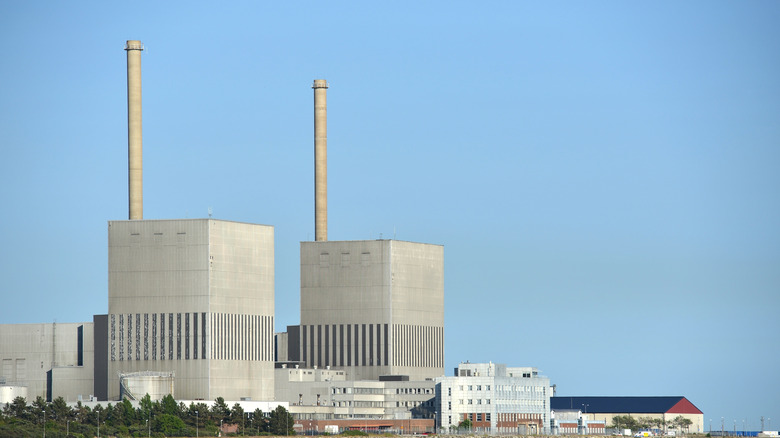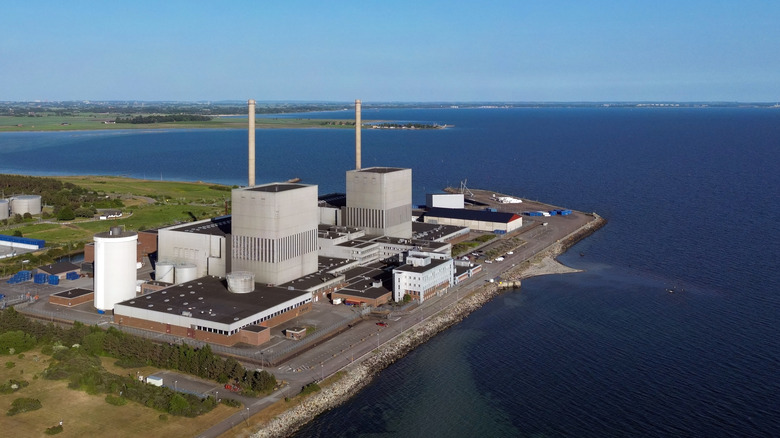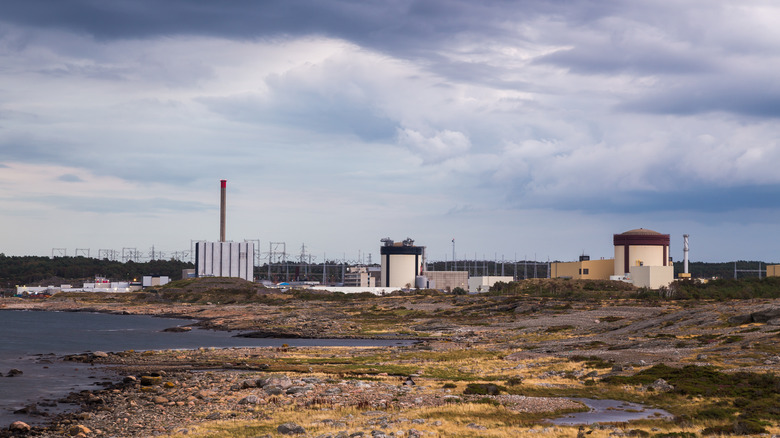Sweden Is Changing It's Mind About Nuclear Energy, Here's Why They Want To Build More Reactors
In March 1979, a cooling malfunction in a nuclear reactor released radioactive gas in Middletown, Pennsylvania. Referred to as the Three Mile Island accident, the U.S. Nuclear Regulatory Commission cites this incident as the "most serious accident in U.S. commercial nuclear power plant operating history." Afterward, this led to significant enhancements in nuclear safety and even influenced nuclear legislation in other countries such as Sweden.
A year later, the Swedish parliament held a referendum to decide the future of nuclear power in the country. In March 1980, the Swedes voted to run the existing power plants and those under construction until the end of their operational lives. At the time, it was assumed that these plants would be running for around 25 years. The Swedish parliament voted to embargo further expansion, hoping to close the existing 12 power plants by 2010 if it was feasible for new energy resources to replace them.
After the 1986 Chernobyl accident in Ukraine (then the Soviet Union), the Swedish parliament set up a stricter decommission timeline for some plants. In June 2010, however, the country narrowly passed a government proposal to replace the remaining nuclear reactors instead of phasing them out as initially planned. Because nuclear power plants produce almost no greenhouse gasses (GHG), this played into the Swedish government's Climate and Energy Policy, which aimed to achieve zero-net GHG emissions by 2050. Things changed even more in 2017 when Sweden instead began aiming for negative emissions by 2045.
The state of nuclear power in Sweden
In 2023, only six of Sweden's original 12 nuclear reactors are still in production. Despite this, Vattenfall claims that Sweden's nuclear reactors provide around 30% of its electricity. Sweden's official website claims that, as of 2022, more than 60% of its electricity comes from renewable sources.
In an effort to double its electricity production by 2045, Energy Watch reported that the Swedish government plans to have at least 10 new nuclear reactors. However, it's important to note that this target, shared by climate minister Romina Pourmokhtari, was quietly removed from the Swedish government's website a few days later.
Despite this, it seems Sweden's support for nuclear power is just getting started. Previously, Energy Intelligence reported that the Swedish government already offered $38 billion in loan guarantees to support nuclear power infrastructure, alongside efforts in nuclear coordination and faster regulation reviews.
To mitigate the private sector's reluctance to support nuclear technology, the Swedish government announced plans to be more involved through an undisclosed funding model. Among its possible partners, Energy Minister Busch shares that state-owned Vattenfall, Finland's Fortum, and Germany's Uniper have already expressed their interest.
Why Sweden is doing a 180 on nuclear technology
In 2017, Sweden announced its ambitious goal of 100% renewable electricity by 2040. However, recent estimates by the Swedish government revealed that electricity demand will reach up to 300 Twh by 2045, which it may not be able to supply with existing renewable technology.
In June 2023, Finance Minister Elisabeth Svantesson said in parliament, "This creates the conditions for nuclear power. We need more electricity production, we need clean electricity and we need a stable energy system" (via Reuters).
In addition, public opinion on using nuclear power as an energy source has also shifted dramatically throughout the years. In 2021, a Göteborgs Universitet study revealed that in 1986, 75% of people surveyed were for phasing it out, while only 49% of respondents felt similarly in 2020. Public sentiment for phasing out nuclear power sources even reached an all-time low of 31% around 2010, when the vote to repeal the 1980 policies occurred.
In 2023, it's unsurprising that Sweden replaced its target with 100% fossil-free electricity instead by 2040. In a statement to Reuters, Energy Minister Ebba Busch said, "It's decisive for the green transition, for Swedish jobs, and at heart for the welfare of our citizens."


